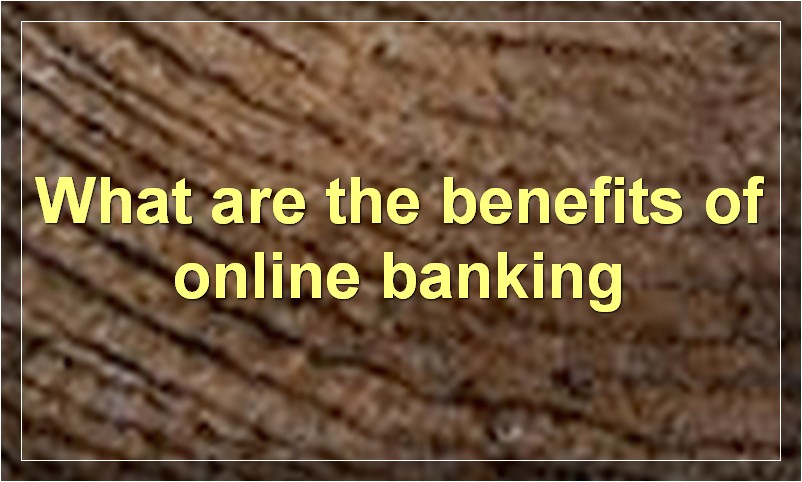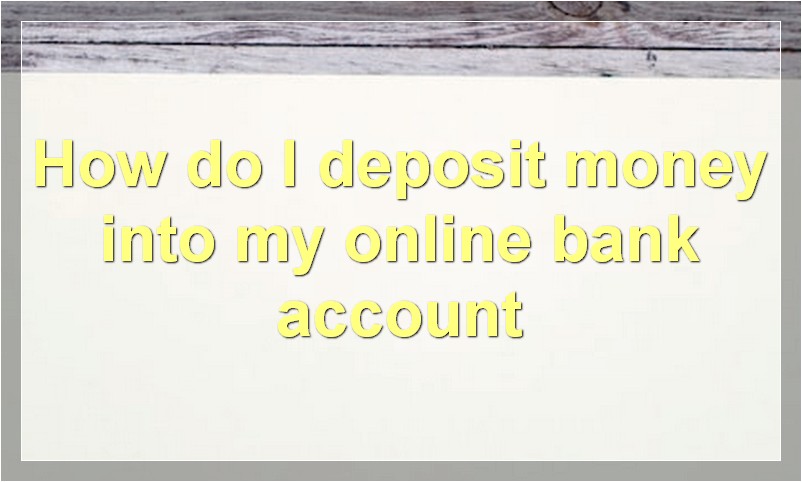Banking is changing. No longer do you have to go into a physical bank to do your banking. You can do it all from the comfort of your own home with online banks. Online banks are the best way to bank. They are convenient, easy to use, and often have lower fees than traditional banks.
What is the best online bank
There are many online banks to choose from, but which one is the best? This can be a difficult question to answer because it depends on what you’re looking for in an online bank. Do you want the bank with the best interest rates? The one with the lowest fees? The one with the best customer service?
To help you choose the best online bank for you, we’ve compiled a list of the top 10 online banks based on different criteria. We’ve looked at the banks with the best interest rates, the lowest fees, and the best customer service. We’ve also looked at which banks offer the most features and bonuses.
So, without further ado, here are the 10 best online banks:
1. Ally Bank – Best Overall
Ally Bank is our top pick for the best online bank. It offers great interest rates, low fees, and excellent customer service. It also has a wide range of features, including mobile check deposit and no-fee ATM withdrawals.
2. Capital One 360 – Best Interest Rates
Capital One 360 is our pick for the best online bank for interest rates. It offers some of the highest interest rates on savings accounts and CDs. It also has low fees and good customer service.
3. Charles Schwab – Best for Customer Service
Charles Schwab is our pick for the best online bank for customer service. It offers excellent customer service and a wide range of features, including mobile check deposit and 24/7 live chat support.
4. Discover Bank – Best for Bonuses
Discover Bank is our pick for the best online bank for bonuses. It offers a cash back program and a wide range of other bonuses, such as sign-up bonuses and referral bonuses. It also has low fees and good customer service.
5. Fidelity Investments – Best for Investment Options
Fidelity Investments is our pick for the best online bank for investment options. It offers a wide range of investment options, including stocks, bonds, and mutual funds. It also has low fees and good customer service.
6. Goldman Sachs – Best for Business Banking
Goldman Sachs is our pick for the best online bank for business banking. It offers a wide range of business banking services, including loans, lines of credit, and merchant services. It also has low fees and good customer service.
7. HSBC – Best for International Banking
HSBC is our pick for the best online bank for international banking. It offers a wide range of international banking services, including foreign exchange, international wire transfer, and global account management. It also has low fees and good customer service.
What are the benefits of online banking
The ability to bank online has revolutionized the banking experience for millions of people around the world. Here are some of the key benefits of online banking:
1. Convenience: Online banking enables you to conduct your banking activities at any time, from anywhere in the world. All you need is an internet connection. This is a huge benefit for busy people who don’t have time to visit a physical bank branch during traditional banking hours.
2. Speed: Online banking is much faster than traditional banking. For example, you can transfer funds between accounts almost instantaneously, and you can pay bills with just a few clicks. This saves you a lot of time compared to waiting in line at a physical bank branch.
3. 24/7 access: One of the biggest benefits of online banking is that you can access your account 24 hours a day, 7 days a week. This is extremely convenient if you need to check your balance or make a transfer outside of normal banking hours.
4. Lower fees: Many banks charge lower fees for online banking services than they do for traditional services. For example, you may be able to avoid monthly maintenance fees or ATM withdrawal fees by using online banking.
5. More features: Online banking typically offers more features than traditional banking. For example, you may be able to set up account alerts, view detailed transaction history, and even manage your investments all in one place. This gives you more control over your finances and makes it easier to stay on top of your money.
What are the disadvantages of online banking
There are a few disadvantages of online banking that customers should be aware of. One is that it can be easy to lose track of spending and payments when everything is done online. Another potential downside is that hackers could gain access to customers’ accounts and financial information if the bank’s website is not secure. Additionally, online banking may not be available 24/7 like a traditional bank, so if there are any issues with a customer’s account, they may have to wait until the next business day to get help.
What is the difference between online and offline banking
There are several key differences between online and offline banking. One of the most notable differences is that online banking generally offers more features and options than offline banking. For example, online banking typically allows customers to check their account balances, transfer money between accounts, pay bills, and view recent transaction history. Additionally, online banks often provide budgeting tools and other financial management resources that can be helpful for customers. Another difference between online and offline banking is that online banks are typically open 24 hours a day, 7 days a week, while offline banks have more limited hours. Finally, customers usually need to physically visit an offline bank branch to open an account, whereas opening an online bank account can be done entirely online.
How do I open an online bank account
Opening an online bank account is a pretty easy process these days. You can do it all from the comfort of your own home, and you don’t even need to go into a physical bank branch. Here’s how to do it:
1. Decide which bank or credit union you want to use. There are lots of different options out there, so take some time to research the different fees, features, and customer service ratings of each one.
2. Once you’ve decided on a bank, go to their website and look for the “Open an Account” link. This will take you to the page where you can begin the process.
3. Follow the instructions on the page. You’ll generally be asked to provide some personal information (like your name, address, and Social Security number) and then choose what type of account you want to open.
4. Once you’ve completed all the necessary steps, your new account will be opened and ready to use!
How do I deposit money into my online bank account
Assuming you would like a blog titled “How do I deposit money into my online bank account”, here is an idea for such a blog:
If you’re like most people, you probably have a checking account with a local bank. But what if you want to move your money into an online bank? It’s actually quite easy to do!
Here are the steps you need to take in order to deposit money into your online bank account:
1. First, log into your online bank account.
2. Once you’re logged in, locate the “Deposit” or “Add Funds” section.
3. Then, enter the amount of money you want to deposit into your account.
4. Finally, select the account you want to deposit the money into and confirm the transaction.
That’s all there is to it! Depositing money into your online bank account is quick and easy. Just follow the steps above and you’ll be up and running in no time.
How do I withdraw money from my online bank account
There are a few different ways that you can withdraw money from your online bank account. The first way is to use your debit card at an ATM. You will need to know your PIN number in order to do this. The second way is to transfer the money to another account that you have, such as a PayPal account. The third way is to request a check from your bank. This may take a few days for the check to arrive, but it is a simple process.
What are some common features of online banking
Online banking is a convenient way to manage your finances from the comfort of your own home. Here are some common features of online banking:
-View account balances and transactions
-Transfer money between accounts
-Pay bills online
-Set up automatic payments
-Send and receive money
-Open new accounts
-View statements and documents
-Update personal information
What security measures should I take when using online banking
Using online banking is a convenient way to manage your finances, but it’s important to take security measures to protect your information. Here are some tips to follow:
– Use strong passwords for your online banking account and never share them with anyone.
– Make sure you’re using a secure connection when accessing your bank’s website. Look for the “https” in the address bar and a padlock icon.
– Avoid public Wi-Fi when logging in to your online banking account.
– Be aware of phishing scams, where criminals try to trick you into giving them your login credentials or other personal information. If you receive an email or pop-up message that looks suspicious, don’t click on any links or open any attachments.
By following these tips, you can help keep your information safe when using online banking.
What should I do if I have problems with my online bank account
If you have problems with your online bank account, the best thing to do is contact your bank directly. Your bank will be able to help you troubleshoot the issue and get your account back up and running.



